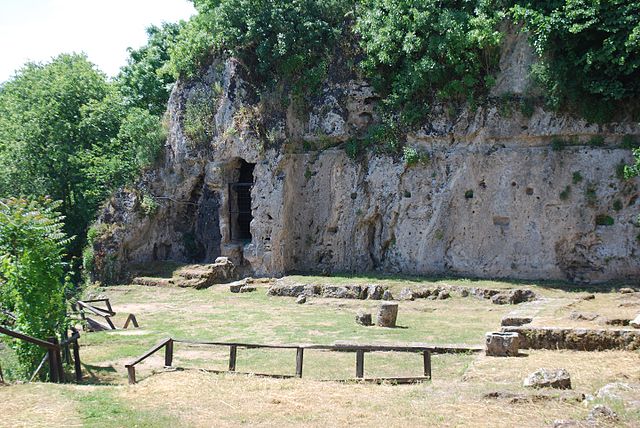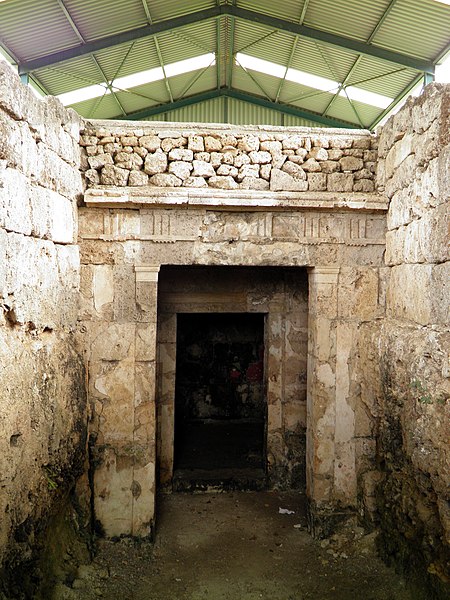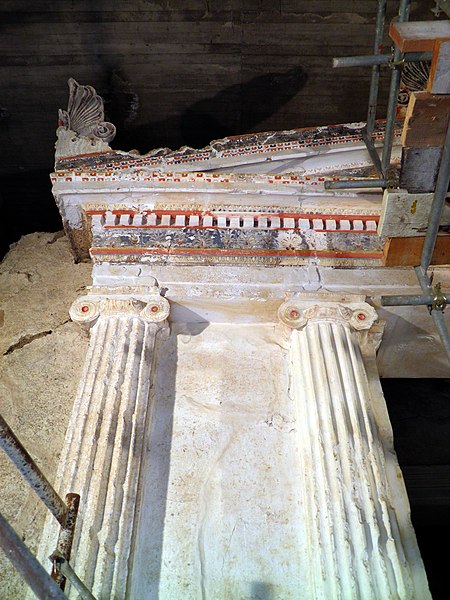Peucestas was a native of the town of Mieza, in Macedonia, and a distinguished officer in the service of Alexander the Great. His name is first mentioned as one of those appointed to command a trireme on the Hydaspes. Prior to this he must have distinguished himself for his personal valour and prowess, as he was the person selected by Alexander to carry before him in battle the sacred shield, which he had taken down from the temple of Athena at Troy. In this capacity he was in close attendance upon the king's person in the assault on the capital city of the Malavas ; and all authors agreed in attributing the chief share in saving the life of Alexander upon that occasion to Peucestas, while they differed as to almost all the other circumstances and persons concerned.
The ladder breaks stranding Alexander and a few companions, including Peucestas, within the Mallian town during the Mallian Campaign. André Castaigne (1898-1899).
Mieza, "shrine of the Nymphs", was a town in ancient Macedonia, where Aristotle taught the boy Alexander the Great between 343 and 340 BCE. Ptolemy classifies Mieza among the cities of Emathia. Stephanus of Byzantium, on the other hand, deriving his information apparently from Theagenes, alludes to it as "τόπος Στρυμόνος", and adds that it was sometimes called Strymonium. The site where Mieza once stood is the modern Lefkadia, near the modern town Náousa, Imathia, Central Macedonia, Greece, and has been the subject of archeological excavations since 1954.
Cave site at Mieza believed to be part of Aristotle's Macedonian school
Modern statue of Aristotle near the School
Kinch's Tomb
Facade of the "Tomb of the Palmettes" (3rd BC)





